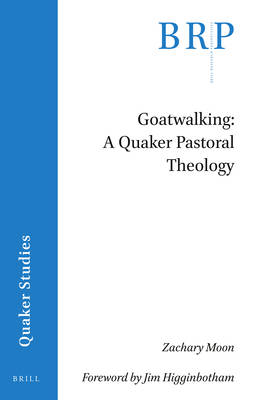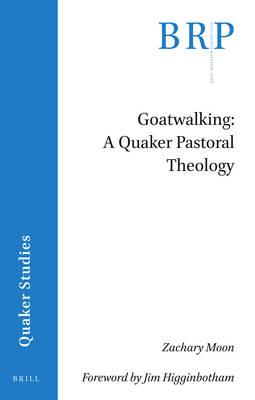
- Afhalen na 1 uur in een winkel met voorraad
- Gratis thuislevering in België vanaf € 30
- Ruim aanbod met 7 miljoen producten
- Afhalen na 1 uur in een winkel met voorraad
- Gratis thuislevering in België vanaf € 30
- Ruim aanbod met 7 miljoen producten
Zoeken
Omschrijving
Zachary Moon explores the rich traditions of the Religious Society of Friends (Quakers) in relationship to the field of pastoral theology. Firstly, he explores the significance of metaphor in influencing the pastoral theological imagination. This includes revisiting Seward Hiltner's classic 'shepherding perspective.' Moon secondly utilizes the works of Jim Corbett in animating an alternative pastoral metaphor and claims a 'goatwalking perspective.' Finally, he broadly traverses the terrain of Quaker traditions, particularly those practices that pertain to compassionate care and support of spiritual wellbeing, acknowledging that the concepts of 'pastoral theology' and 'pastoral care' are largely unfamiliar within Quaker theological understanding yet asserting that Quaker traditions provide resources that aid broader pastoral theological discourse and support the healthy living out of Quaker faith in community.
In a Foreword, Jim Higginbotham explores a complementary metaphor of sanctuary for pastoral theology. Inspired by Corbett's role as one of the founders of the Sanctuary Movement, sanctuary is understood as a sacred liminal space of radical hospitality connecting the pastoral and prophetic.
In a Foreword, Jim Higginbotham explores a complementary metaphor of sanctuary for pastoral theology. Inspired by Corbett's role as one of the founders of the Sanctuary Movement, sanctuary is understood as a sacred liminal space of radical hospitality connecting the pastoral and prophetic.
Specificaties
Betrokkenen
- Auteur(s):
- Uitgeverij:
Inhoud
- Aantal bladzijden:
- 84
- Taal:
- Engels
- Reeks:
Eigenschappen
- Productcode (EAN):
- 9789004462090
- Verschijningsdatum:
- 18/03/2021
- Uitvoering:
- Paperback
- Formaat:
- Trade paperback (VS)
- Afmetingen:
- 152 mm x 239 mm
- Gewicht:
- 90 g

Alleen bij Standaard Boekhandel
+ 286 punten op je klantenkaart van Standaard Boekhandel
Beoordelingen
We publiceren alleen reviews die voldoen aan de voorwaarden voor reviews. Bekijk onze voorwaarden voor reviews.











